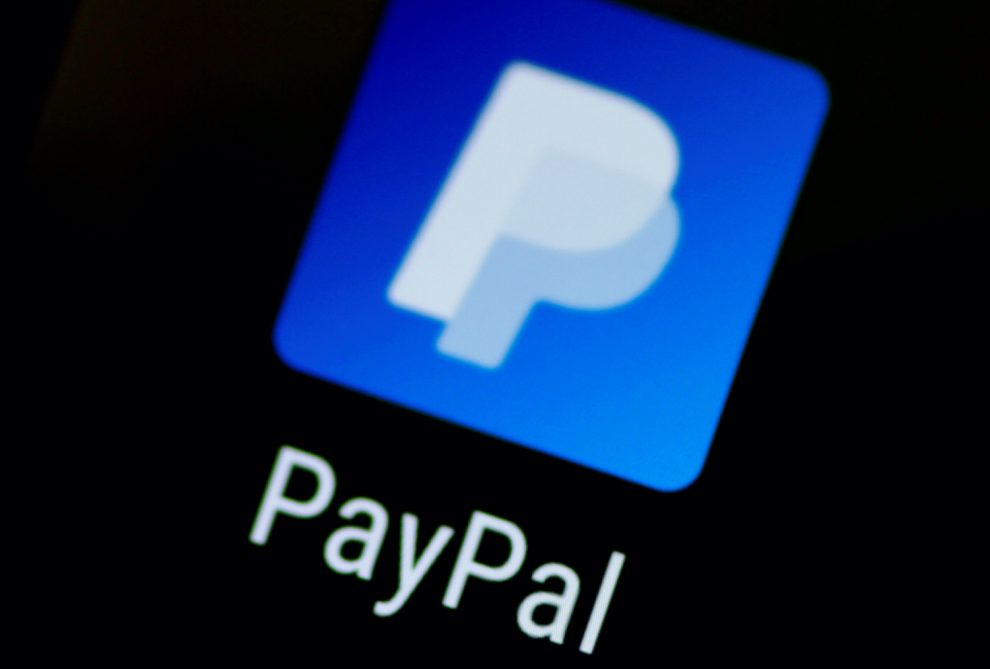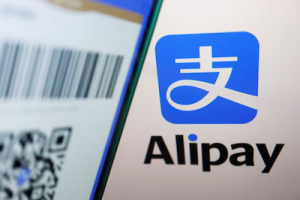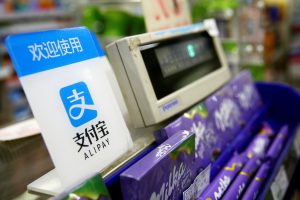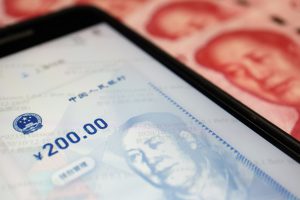(ATF) PayPal, which recently took full control of Chinese payment service provider Guofubao Information Technology Co Ltd – GoPay – is in no position to compete with Alipay or WeChat Pay in China’s domestic market, sources close to the firm say. PayPal is likely to continue to focus on cross-border payment services, they said, which brought it revenue of about $700 million last year from Chinese export merchants.
“As far as I know, PayPal had agreed to acquire 100% of GoPay in 2019, and the recent move is just to complete the transaction,” a source close to the situation who wished to remain anonymous, told Asia Times Financial.
Information recently posted to the Chinese business research platform Tianyancha revealed that PayPal Information Technology (Shanghai) Co Ltd (PPIT), PayPal’s wholly-owned subsidiary in China, acquired a 30% stake in GoPay on 31 December for 42.86 million yuan ($6.6 million), making GoPay 100% owned by PayPal. Before this, PPIT owned 70% of GoPay indirectly though a Beijing-based company.
PayPal’s acquired a 70% stake in GoPay in December 2019, which made it “the first foreign company licensed to provide online payment services in China,” the company said in a press release at the time.
GoPay, which has its head office in Beijing, ws founded in 2011 by a unit of the Ministry of Commerce and Hainan Airlines Group. It has licences for mobile, online and cross-border yuan payment services.
“After the acquisition of GoPay, PayPal has been integrating the teams, and migrating its products to a new platform that is compliant with Chinese government’s information security requirements,” the source told ATF.
Beijing had requested that PayPal move its data centers to China to make sure that information on accounts registered in China remain within its borders. PayPal has also tightened its procedures to verify the identify of both consumer and merchant customers to meet Chinese regulatory requirements.
“PayPal China will have a separate system to store customer data, and such data will not be shared with PayPal’s headquarters or other entities. What can flow to the US is money,” the source said.
While Chinese local media say PayPal’s acquisition of GoPay marks its entry in the domestic market, another source close to the situation, told ATF he doubted that PayPal was in a position, or had an intention, to compete with Alipay or WeChat Pay.
Alibaba Group’s Alipay, which was originally modeled after PayPal, and Tencent’s WeChat Pay, are ubiquitous in China and together have an over 90% of the online payment market.
“The purpose of obtaining a payment licence in China is mainly to protect its cross-border trade business. After all, cross-border trade business in China brought PayPal about $700 million in revenue last year, which it would not give up. Without a licence, PayPal cannot even operate in China,” he said.
PayPal first entered China in 2005 after eBay acquired China’s first auction site Eachnet in 2002. It subsequently became a payment method on Eachnet, supporting domestic transactions. However, Taobao, which Jack Ma founded in 2003, quickly grabbed the market share from Eachnet by charging no seller fees and became the most popular marketplace.
Low profile but growing
After the fall of Eachnet, PayPal China has been focusing on cross-border payment services. Keeping a low profile, the company has been recording double-digit growth in the country and its revenues have grown almost seven times over a 10-year period.
PayPal now has about 200,000 merchant customers in China that sell online to overseas countries. PayPal charges a fee, typically 3.4% to 4.4% of the sales amount, for processing their cross-border transactions.
PayPal has enjoyed dominance for many years in helping Chinese merchants sell directly on their own websites or on marketplaces to overseas buyers, but alternative payment methods such as Stripe, Skrill, Payoneer, and World First, have emerged and many of them charge lower fees.
PayPal has also been developing an import-focused business to help Chinese consumers shop from overseas, but the business never took off.
“As a payment service provider with strong presences in the US and the Europe, and average payment volumes, PayPal is ‘harmless’ to the Chinese payment companies. They would only consider PayPal a competitor when they expand their business overseas,” Xue Hongyan, Vice President of Suning Institute of Finance, said.
According to research by Suning Institute of Finance, total payment volumes processed by PayPal in a year account for about 2% of those processed by China’s payment services providers (which exclude banks). The growth rate of PayPal’s payment volumes, typically 20% to 30% per year, also fall far behind those of Chinese players.
“GoPay is licensed to process internet payments, mobile payments, fund payments and cross-border yuan payments, and to issue prepaid cards. But it is not licensed to provide card acquiring services, which means PayPal will not be able to process offline payments in China,” Xue Hongyan, Vice President of Suning Institute of Finance, said.
In terms of online payments, both GoPay and PayPal have very small numbers of consumer customers in China, and it is unlikely that PayPal would throw big sums of its marketing budget in China to grab users who are accustomed to low fees and subsidies.
Alipay now charges approximately 1% and WeChat Pay about 0.6% to their merchants.
Focus on cross-border trade
“Cross-border trade has always been PayPal’s strength. It has accounted for about 20% of PayPal’s total payment volumes over the last few years,” Xue said, adding that PayPal’s focus in many countries in Southeast Asia and Latin America has been on cross-border trade because it has not yet obtained a domestic payment licence in those countries.
“The benefit of acquiring GoPay is that it gives PayPal a payment licence in China. It can gradually convert its cross-border payment users to domestic payment users. After three to five years of accumulation, this will provide a solid foundation for PayPal’s domestic business to take off,” Xue said.
In 2018, China’s central bank announced that it would open the market to foreign third-party digital payment firms, a move intended to promote competition in the retail payments industry.
American Express, MasterCard
In November of 2018, American Express’s China-based joint-venture received approval from China’s central bank for a network clearing licence, which made it the first foreign payment network to be licensed to clear transactions in Chinese currency, the yuan, in China.
Separately, MasterCard received approval in February last year to set up a bank card clearing business in China.
PayPal was founded in 1998 by Peter Thiel and Max Levchin as a predecessor company called “Confinity”. Confinity later merged with Elon Musk’s payment company X.com, and was renamed PayPal. It went public in February 2002, but was acquired by eBay in the same year. In 2015, it parted ways with eBay and became an independent company. The company reported a net profit of $2.5 billion on revenues of $17.8 billion in 2019.
Alipay was founded in 2004 and was originally a payment method on e-commerce marketplace Taobao. It has evolved into an all-in-one financial services platform that provides payment, micro-lending and wealth management services. Ant Group, the operator of Alipay, recorded a net profit of 21.9 billion yuan ($3.4 billion) in the first half of last year on revenues of 72.5 billion yuan ($11.2 billion).
Alipay is among eight Chinese apps that Donald Trump signed new orders against early this month, as his days in the White House were coming to an end. There has been speculation that new President Joe Biden might revoke some of those orders, however it is not yet known if or when that might happen.
























